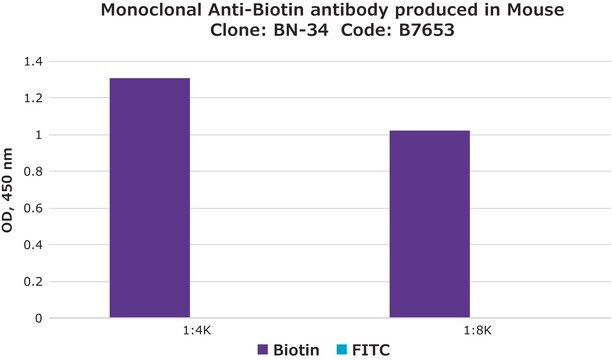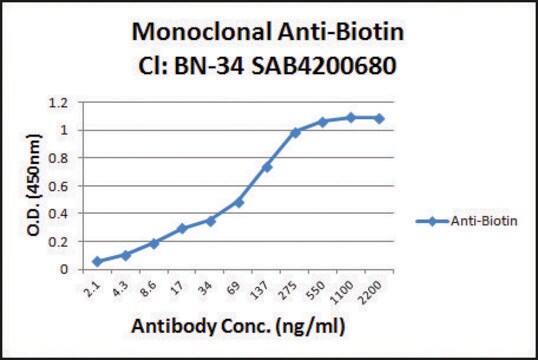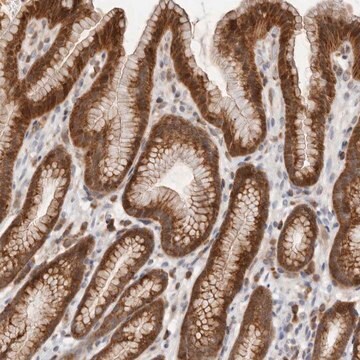추천 제품
생물학적 소스
mouse
재조합
expressed in mouse cell line
결합
agarose conjugate
항체 형태
purified immunoglobulin
항체 생산 유형
primary antibodies
클론
BN-34, monoclonal
양식
PBS suspension
라벨링 범위
2 mg antibody per mL resin
기술
ELISA: suitable
immunohistochemistry: suitable
immunoprecipitation (IP): suitable
western blot: suitable
동형
IgG1
용량
0.15-0.3 μmol/mL, agarose binding capacity (biotin-ligand conjugate)
응용 분야
research pathology
배송 상태
wet ice
저장 온도
2-8°C
타겟 번역 후 변형
unmodified
유사한 제품을 찾으십니까? 방문 제품 비교 안내
일반 설명
면역원
애플리케이션
Chromatin immunoprecipitation (1 paper)
- pulldown assay
- coimmunoprecipitation
- chromatin immunoprecipitation
- purification of biotinylated compounds and biotin-containing compounds
In some applications, localization of biotinylated probes with avidin produces high background levels. Anti-biotin reagents may be substituted for avidin to decrease non-specific binding.
In some applications, localization of biotinylated probes with avidin produces high background levels. Anti-biotin reagents may be substituted for avidin to decrease non-specific binding.
물리적 형태
제조 메모
기타 정보
면책조항
적합한 제품을 찾을 수 없으신가요?
당사의 제품 선택기 도구.을(를) 시도해 보세요.
Storage Class Code
10 - Combustible liquids
WGK
WGK 3
Flash Point (°F)
Not applicable
Flash Point (°C)
Not applicable
관련 콘텐츠
Pull-down assays, reagents, and protocols for investigating in vitro protein-protein interactions using affinity or GST pull-down, tandem affinity purification (TAP), and co-immunoprecipitation methods.
자사의 과학자팀은 생명 과학, 재료 과학, 화학 합성, 크로마토그래피, 분석 및 기타 많은 영역을 포함한 모든 과학 분야에 경험이 있습니다..
고객지원팀으로 연락바랍니다.







